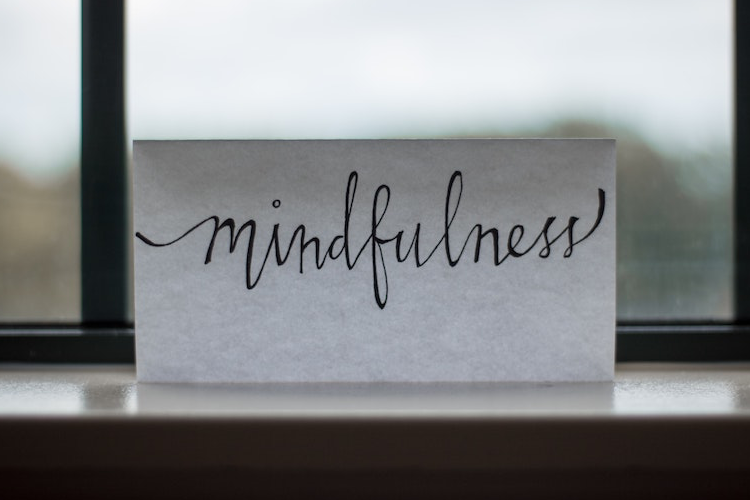Green Hill, its team of clinicians and the collective experience of its recovering staff have come to one incontrovertible conclusion: mindfulness is a key skill to develop if attempting holistic and healthful recovery from substance abuse disorders. In this post, we will help to break down what mindfulness is, how it helps in recovery, and how we add this to our programming here at Green Hill.
Living in a world where even recreational time is exhaustively scheduled and geared towards betterment, young adults developing during our modern age face this peculiar time poverty (and the stress that entails) perhaps more than prior generations. When every second is geared either towards production or consumption, what chance is there for our brains to engage in our beautiful, restful now?
So let’s first consider and examine what precisely mindfulness is, and then how is it present both in the empirical sciences and in our own Green Hill programming.
What is Mindfulness?
Defined by Merriam Webster as “the practice of maintaining a nonjudgmental state of heightened or complete awareness of one’s thoughts, emotions, or experiences on a moment-to-moment basis,” mindfulness has been a component of spiritual traditions for millenia. We can simplify this definition of mindfulness to ‘awareness in the moment.’
Meditation and yoga are some of the most ubiquitous mindfulness practices, and more recently, mindfulness practices have become popularized in the West, both in psychological and self-help circles.

Cultivating mindfulness is a bedrock skill in many therapeutic modalities from acceptance and commitment therapy to cognitive behavioral therapy. So how does mindfulness relate to the recovery process?
Mindfulness in Recovery
From slogans like “just for today” popularized in 12-step fellowships to the extensive integration of eastern philosophies and devotional practices in cutting-edge therapeutic techniques, recovery and mindfulness have long been bedfellows in producing a better, more balanced personhood.
Cutting short the often harmful narrative we cycle in our thoughts and bringing our anxieties to a much more digestible today allows recovering persons to cease distracting and unnecessarily vexing cognitive patterns and instead focus on what they can do in the moment.
Neuroplasticity and Mindfulness
Substance use disorders result in modified brain chemistry, which causes our brain to seek chemical relief, sometimes without our knowledge or permission. Neuroplasticity refers to the physiological changes in the brain that happen as the result of our interactions with our environment. From the time the brain begins to develop in utero until the day we die, the connections among the cells in our brains reorganize in response to our changing needs. This dynamic process allows us to learn from and adapt to different experiences.
Returning perpetually to the present is a necessary skill to cultivate when dealing with many heightened psychological states, especially those triggering to those with substance abuse disorders. Utilizing mindfulness and the careful shepherding of mental health professionals, neuroplasticity means that minds with sometimes fatal coping mechanisms can be artfully reshaped to respond in healthier ways to debilitating stressors. We have trained our brains to respond to substances as a coping mechanism, mindfulness can help us to retrain them to cope in other ways.
If mindfulness, meditation, and yoga seem a bit “woo woo” for you, maybe it’s helpful to think of these practices as mental training — here’s a short video from the neuroscientist Sam Harris.
Recovery Dharma
A peer-led group that uses Buddhist practices and principles to overcome addiction through meditation, personal inquiry, and community, Recovery Dharma is a welcome addition to the wider world of recovery communities. You don’t need to identify as a Buddhist to participate in Recovery Dharma meetings and the teachings are fully compatible with a secular perspective.
Similar to 12-Step programs such as Alcoholics Anonymous and Narcotics Anonymous, Recovery Dharma has in person and online meetings, as well as make their meeting formats available for the general public to use in small settings such as our own Transitional Living program. Typically, a Recovery Dharma meeting consists of a reading that helps explain mindfulness or meditation practices, a period of meditation, and time for individuals to share their thoughts, experiences, and insights.
Mindfulness at Green Hill
An aspect of every phase of our Green Hill curriculum, introducing and reinforcing regular mindfulness practice is an integral fragment of the balanced life we envision for our clients. Not only strong advocates, our staff has significant experience in various practices. CEO Tripp Johnson is an experienced yogi and meditator who has begun personally leading breath-focused Ashtanga yoga sessions for our transitional living and community programs. Tripp’s goal is not only to educate our clients on mindfulness practices, but to serve as an example for the positive impact it can have on their lives.
Similarly, Clinical Director Matt O’Connor bears an extensive background in meditation techniques both in clinical and personal settings, and speaks confidently about the benefits such practices provide.
“A lot of neuroscience focuses on the impact meditation can have on our prefrontal cortex which is vital in the process of making better decisions: which we all know is vital in the recovery process,” says O’Connor, who often initiates group therapy sessions with an introductory centering period.
O’Connor continued: “What is talked about a bit less is the impact it has on your grey and white matter in the brain. These areas are responsible for intelligence, working memory, and communication between different brain areas. Mindfulness practices slow down our reactivity and increase our responsiveness through development and strengthening of these brain matters… in all actuality, it is difficult to find an area of the brain that is not impacted in a positive way by mindfulness practices.”

Understanding the science behind mindfulness in recovery and applying it to our programming is a major foundational element of our curriculum at Green Hill. A life in recovery means much more than simply a life abstemious from substance use.
We at Green Hill are determined to empower our clients to develop personal practices that center and sustain them, helping not just themselves, but the world about them. Mindfulness is just another tool you can use to find a fulfilling life in recovery. It helps us to stay present and aware, and cope with the pressures of everyday life.
Namaste.






